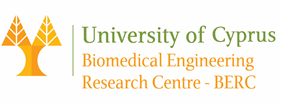 The process of implementing a novel test for diagnostic use is complex and involves many levels of assessment and validation. The key components of the process, as detailed by the ACCE (Analytic validity, Clinical validity, Clinical utility and Ethical, legal and social implications) framework, are analytical validation, clinical validation, clinical utility and consideration of the ethical, legal and social implications of the test. The proposed IPMT CoE will concentrate on developing diagnostic tools which will be shaped into suitable laboratory procedures. These tools will be assessed for both the diagnostic and technical use of the process to ensure that the measurements obtained are relevant to the diagnostic question(s) and that the results can be unambiguously identified (i.e. that there are no confounding factors). The final stage of the process is to determine whether the performance of the test, in terms of accuracy, meets the required diagnostic standards. The results of the validation or verification determine whether, and how, the tool will be implemented and set the requirements for performance monitoring (ongoing validation) of the test.The partners in the IPMET CoE consortium include a number of leading medical institutions which can perform the initial ACCE framework-procedures before the developed tools progress to commercial exploitation and clinical trials. Of the local partners, the CING is the reference centre for all neurodegenerative and genetic diseases for the entire country which provides unique access and straightforward follow up of patients. The NGH is the biggest hospital in Cyprus and the reference centre for Critical Care. Alongside, the faculty of the UCY Medical School have accumulated experience to perform complex clinical and validation trials. The advanced partners in Spain and Germany also collaborate with leading medical institutions as well as industrial partners who might be involved in the development and exploitation of the diagnostic tools. In the clinical development and validation stage, additional access to patients in the wider region of the Middle East/North Africa will be sought where the patient population unique characteristics may be interesting and/or necessary to fully address the “precision” challenges.
The process of implementing a novel test for diagnostic use is complex and involves many levels of assessment and validation. The key components of the process, as detailed by the ACCE (Analytic validity, Clinical validity, Clinical utility and Ethical, legal and social implications) framework, are analytical validation, clinical validation, clinical utility and consideration of the ethical, legal and social implications of the test. The proposed IPMT CoE will concentrate on developing diagnostic tools which will be shaped into suitable laboratory procedures. These tools will be assessed for both the diagnostic and technical use of the process to ensure that the measurements obtained are relevant to the diagnostic question(s) and that the results can be unambiguously identified (i.e. that there are no confounding factors). The final stage of the process is to determine whether the performance of the test, in terms of accuracy, meets the required diagnostic standards. The results of the validation or verification determine whether, and how, the tool will be implemented and set the requirements for performance monitoring (ongoing validation) of the test.The partners in the IPMET CoE consortium include a number of leading medical institutions which can perform the initial ACCE framework-procedures before the developed tools progress to commercial exploitation and clinical trials. Of the local partners, the CING is the reference centre for all neurodegenerative and genetic diseases for the entire country which provides unique access and straightforward follow up of patients. The NGH is the biggest hospital in Cyprus and the reference centre for Critical Care. Alongside, the faculty of the UCY Medical School have accumulated experience to perform complex clinical and validation trials. The advanced partners in Spain and Germany also collaborate with leading medical institutions as well as industrial partners who might be involved in the development and exploitation of the diagnostic tools. In the clinical development and validation stage, additional access to patients in the wider region of the Middle East/North Africa will be sought where the patient population unique characteristics may be interesting and/or necessary to fully address the “precision” challenges.
